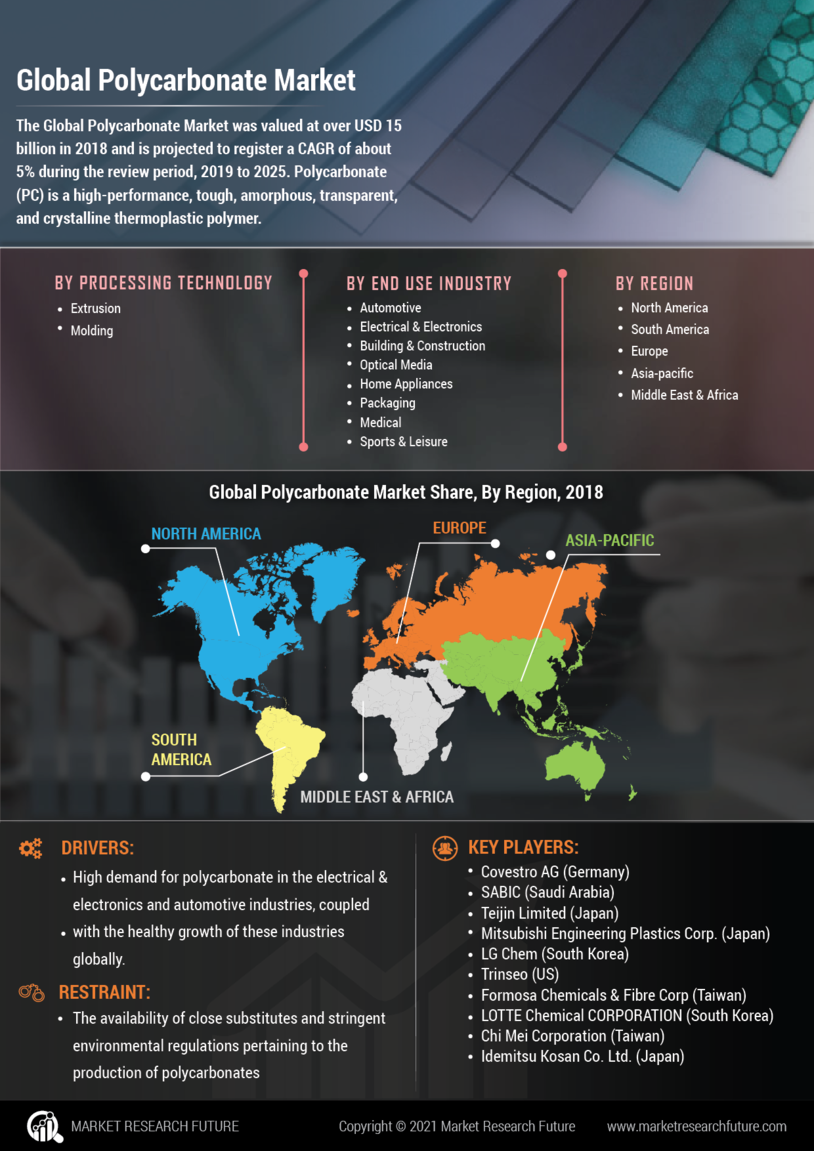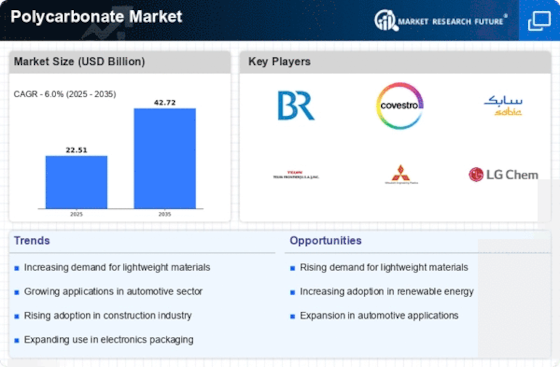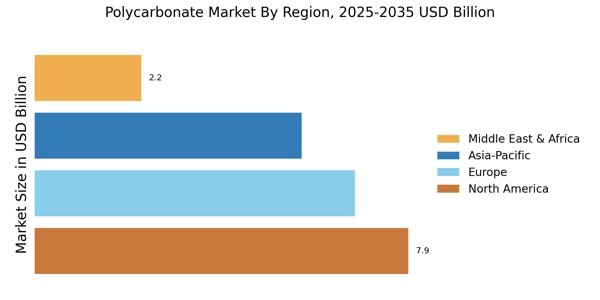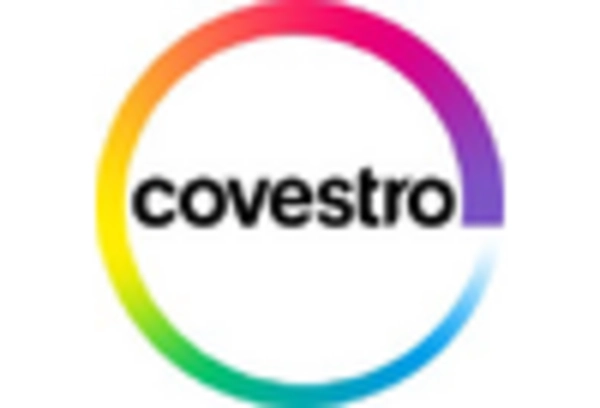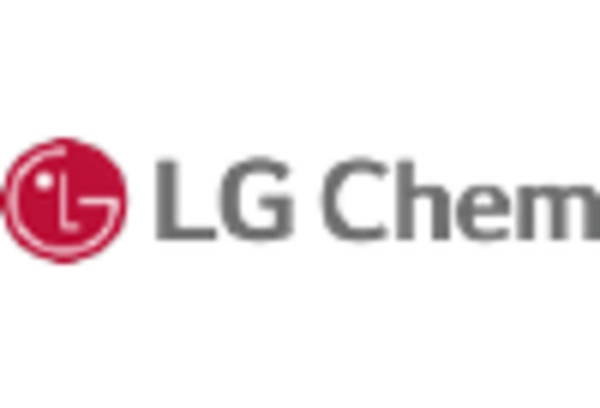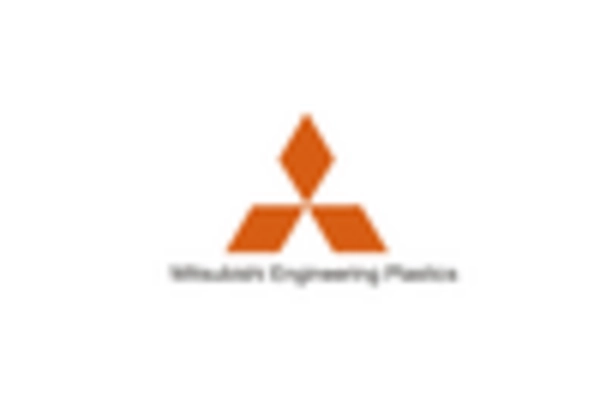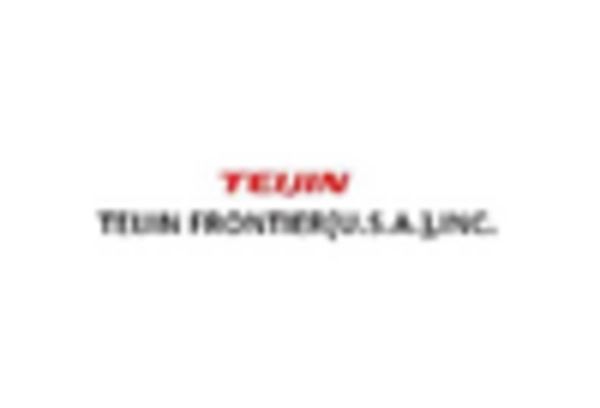Growth in Construction Activities
The construction industry is currently experiencing a resurgence, leading to increased demand for polycarbonate materials. Polycarbonate Market benefits from the material's versatility, which is utilized in applications ranging from roofing to glazing. In 2025, the construction sector is expected to represent around 30% of the total polycarbonate market. The material's ability to provide natural light while offering insulation and UV protection makes it a preferred choice for modern architectural designs. Additionally, the trend towards sustainable building practices is likely to enhance the appeal of polycarbonate, as it is recyclable and energy-efficient, aligning with the industry's shift towards environmentally friendly materials.
Rising Demand in Automotive Sector
The automotive sector is experiencing a notable increase in the adoption of polycarbonate materials, primarily due to their lightweight and durable properties. Polycarbonate Market is witnessing a shift towards more fuel-efficient vehicles, where reducing weight is crucial. In 2025, the automotive industry is projected to account for approximately 20% of the total polycarbonate consumption. This trend is driven by the need for enhanced safety features, such as impact-resistant windows and lightweight components, which polycarbonate effectively provides. Furthermore, the growing trend of electric vehicles is likely to further boost the demand for polycarbonate, as manufacturers seek materials that contribute to overall vehicle efficiency and performance.
Technological Innovations in Manufacturing
Technological advancements in the manufacturing processes of polycarbonate are significantly influencing the Polycarbonate Market. Innovations such as improved extrusion techniques and enhanced molding processes are leading to higher quality products with better performance characteristics. In 2025, it is anticipated that these advancements will contribute to a reduction in production costs, making polycarbonate more accessible to various industries. Furthermore, the development of new grades of polycarbonate with enhanced properties, such as increased impact resistance and thermal stability, is likely to expand its application range. This evolution in manufacturing technology is expected to drive market growth by meeting the diverse needs of end-users.
Expansion of Electronics and Consumer Goods
The electronics and consumer goods sectors are increasingly incorporating polycarbonate materials due to their excellent electrical insulation properties and durability. The Polycarbonate Market is likely to see substantial growth as manufacturers of electronic devices and appliances recognize the benefits of using polycarbonate for housings, components, and casings. In 2025, it is estimated that the electronics sector will account for approximately 15% of the total polycarbonate consumption. The lightweight nature of polycarbonate, combined with its ability to withstand high temperatures, makes it a preferred choice for modern electronic applications. This trend is expected to continue as consumer demand for innovative and durable electronic products rises.
Increasing Awareness of Safety and Security
There is a growing awareness regarding safety and security across various sectors, which is positively impacting the Polycarbonate Market. Polycarbonate Market's inherent properties, such as high impact resistance and shatterproof characteristics, make it an ideal choice for applications in security glazing, protective equipment, and safety barriers. In 2025, the demand for polycarbonate in safety-related applications is projected to rise significantly, as industries prioritize the protection of personnel and assets. This trend is further supported by regulatory standards that emphasize the use of safer materials in construction and manufacturing, thereby driving the adoption of polycarbonate in these critical areas.
